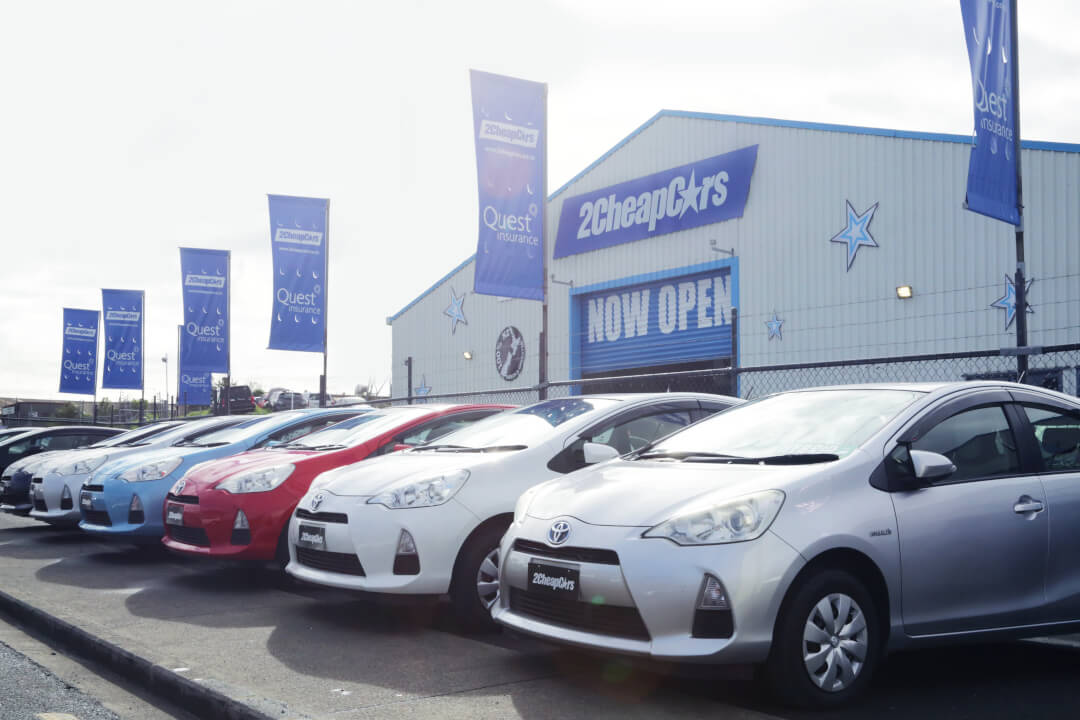NZAI has a long-term strategy when it comes to electric vehicles and it continues to be an area of focus to grow market share. There are three A’s that will help New Zealand accelerate the shift towards mass market adoption of electric and low emission vehicles: they are availability, affordability and awareness.
Availability: NZAI’s retail subsidiary, 2 Cheap Cars, specialises in light vehicle imports and is well placed to service the growing demand for this type of vehicle.
Affordability: Our customers are everyday Kiwis who rely on safe, reliable and affordable transport. Making sure that electric vehicles are affordable, safe and reliable will be fundamental to New Zealand making the switch that needs to happen over time.
Awareness: In order for Kiwis to feel confident in making the switch to an electric or hybrid vehicle, it is important that they understand the benefits and are provided with the right information to make an informed decision.
With a growing percentage of our cars now being electric and hybrid, NZAI will play a crucial role in helping Kiwis adapt and secure affordable vehicles that will meet the future requirements set by the Government.
The Government’s newly announced Clean Car Discount aims to increase the uptake of low-emission cars by implementing rebates for electric and low emission vehicles. It’s good news for Kiwis who are looking to make the switch.
Minister of Transport Michael Wood said the scheme is expected to prevent up to 9.2 million tonnes of carbon dioxide emissions and will help New Zealanders with the upfront cost of switching over to electric and low emission cars.
NZAI is supportive of the rebate scheme for the following reasons:
- The Government is taking this action in order to help New Zealand meet its climate goals and achieve its 2050 carbon neutral target. NZAI is supportive of this goal and agrees that a transition towards lower emission vehicles over time will be essential to reduce New Zealand’s carbon footprint.
- The Clean Car Discount will help make electric and low-emission vehicles more affordable and accessible to the everyday Kiwi. By reducing the cost of low emission vehicle options, people will have more choice and improved access to these types of vehicles.
- The introduction of the rebate scheme will help increase awareness and improve understanding of electric and hybrid vehicles, including why it is important for New Zealanders to transition to low emission vehicles in order to achieve our climate goals.
We acknowledge that there is still significant work to be done to ensure we have the appropriate infrastructure in place around the country to enable Kiwis to confidently make the shift towards electric vehicles.
The Clean Car Discount
On 13 June 2021, the Government introduced new measures to help drive down New Zealand’s transport emissions. The Clean Car Discount aims to increase the uptake of low-emission cars by implementing rebates for electric and plug-in hybrid vehicles.
New rebates for electric and plug-in hybrid vehicles will start on 1 July, with up to $8,625 for new vehicles and $3,450 for used. The rebates will expand from 1 January 2022 to include other low-emission vehicles.
The scheme will be funded through levies on higher-emitting vehicles, which will also come into force on 1 January 2022. Buyers of new petrol cars will have to pay a fee of up to $5875, while those buying newly imported used cars face fees of up to $2875.
NZAI Scale and Reach
NZAI has a 7.5% market share of used car imports in NZ.
Our subsidiary 2 Cheap Cars (2CC) has sold 70,197 cars (from 2012 to 15 April 2021).
2CC has 12 branches and 70+ staff nationwide.
In 2020, 2CC sold 51 EVs and 751 petrol hybrids (HEV).
21% of sales were EV/HEV in the last quarter of FY21, up from 8% at the same time in the prior year.
NZAI is one of a few used car dealerships from New Zealand that has a Japanese based procurement team selecting cars directly in Japan, rather than relying entirely on agents. The great majority of EVs are sourced from Japan.
More than half of vehicles in New Zealand are predicted to be replaced over the next 10 years.

